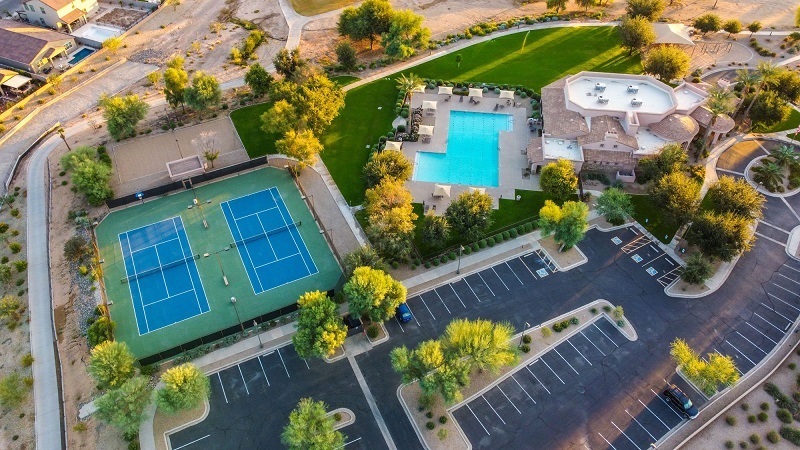If you’re searching for an apartment, condo, or home within a planned unit development, you’re likely familiar with the term’ homeowners association (HOA).’ These associations have become increasingly prevalent in recent years, with approximately 8,000 HOAs being established each year. Surprisingly, up to 53% of individuals now reside in communities governed by HOAs.
Living in an HOA community comes with its fair share of warnings from residents. While there’s no need to fear these associations, they hold significant influence within their communities. So, if you’re contemplating purchasing a home in an HOA-managed community, it’s crucial to grasp how it will affect your lifestyle and finances.
This article provides five critical pieces of information and essential insights about HOAs that you should be aware of.
1. Definition Of Homeowners Associations
A homeowner’s association (HOA) is the authoritative entity for various types of communities, including planned unit developments, residential subdivisions, condominiums, and apartment complexes. These HOAs are usually overseen and operated by resident homeowners elected as boards of directors. While the board of directors plays a significant role, an HOA community may also enlist the services of proficient property managers to handle day-to-day operations or offer consulting expertise.
2. HOAs Rules And Regulations
The primary purpose of an HOA is to establish and enforce rules and regulations about the properties within its jurisdiction. These regulations, known as “restrictive covenants,” are implemented to uphold property values and ensure a high-quality and harmonious living environment within the community. These covenants are clearly outlined in the Declaration of Covenants, Conditions, and Restrictions CC&Rs.
It’s important to note that each HOA is unique in its rules and regulations. Some HOAs may have more lenient guidelines that primarily cover basic courtesy, while others may have extensive CC&Rs that can be quite restrictive and burdensome.
Thus, it’s crucial to thoroughly review an association’s rules and regulations and assess whether you can comply with these requirements. Note that ignoring the HOA rules can result in consequences, such as penalties or restrictions on using common areas. Compliance with the HOA’s guidelines is a necessary aspect of living within the community.
3. HOA Requires Mandatory Fees
Like any governing body, HOAs require financial resources to thrive. This means that every resident member of the HOA must make regular contributions to maintain the neighborhood and sustain the association.
Typically, these contributions are deposited into the HOA’s account or reserved for building the community’s financial reserves. The fee amount is determined based on the annual budget created by the board of directors. It varies depending on community amenities, size, and location. In addition to regular fees for community maintenance, there may be special assessments collected during emergencies or to replenish depleted reserve funds.
Failure to pay these fees may result in penalties and interest, depending on the specific HOA. If payment delinquency persists, the association may take legal action against you, potentially leading to a lawsuit and foreclosure of your home.
4. Being A HOA Member Comes With A Lot Of Perks
Despite the restrictions and regular fees, being a part of a well-functioning HOA community offers many benefits. Firstly, HOA communities are renowned for the amenities they provide to enhance residents’ lifestyles. Parks, fitness centers, clubhouses, and swimming pools are common features where residents can enjoy social interactions and recreational activities.
A well-managed HOA community also ensures increased or consistent property values. Statistics indicate that HOAs can boost property values by nearly 5%. This is achieved through regular contributions and strict rules that help maintain the neighborhood’s overall appeal.
In addition, HOAs alleviate homeowner responsibilities by covering basic maintenance tasks. Depending on the association, you may not have to worry about landscaping or individually paying utility bills. Living in an HOA community reduces or eliminates tedious tasks, allowing you to focus on more important aspects of your life.

Lastly, HOAs contribute to a peaceful living environment. The rules and regulations created by the association primarily focus on fostering a safer and more harmonious community. Whether handling neighbor disputes or providing security services, HOAs promote peace of mind and ensure a tranquil neighborhood atmosphere.
5. HOA Have A Few Drawbacks
While HOAs offer numerous advantages, they also come with certain disadvantages. For instance, some HOAs enforce strict rules and regulations, limiting your freedom to customize your home according to your preferences.
Additionally, if you opt for a home in a community with extensive amenities and services, you should anticipate higher fees that can strain your finances. Falling behind on these fees can result in additional charges and penalties.
Takeaway
When considering a home purchase, it is crucial to thoroughly evaluate all aspects, including the community and any potential HOA involvement. Understanding how HOAs operate and knowing what to expect when becoming a member is vital. By conducting proper research and due diligence, you can make an informed decision that aligns with your needs and ensures a positive homeownership experience.

